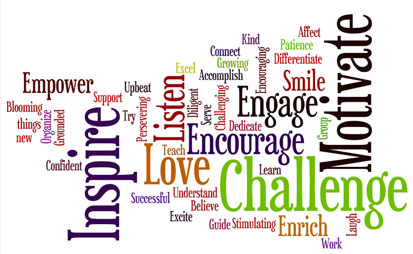In an early post or discussion I talked about how Students and Teachers are like instruments. To learn an instrument you either teach yourself or you learn from a teacher. In education you can teach yourself new things or you can learn through a teacher. When you pick up a new instrument you start with the basics. You start with how to put it together and where to place your fingers to make music, then you begin learning easy music and over the years move on to harder music as you learn and get better. On the first day of class you look at the objectives and the teacher tells you about the class and what you shall be leaning, you begin with easy math, or an easy book to read and then over the years your work becomes a little harder as you grow as a student. As a teacher your work for yourself grows a little harder to because you need to be prepared to teach these students something new that may be harder for them. As a teacher you need to be prepared to teach the new material to the way the students need it to be taught.
You could compare the four different saxophones to the different tiers of school. There'e elementary school,
Middle school, High school and then college. The four saxophones are soprano sax, alto sax, tenor sax, and baritone saxophone. A teacher whether a music teacher or art teacher or even math teacher it is all the same to get through the year. You need to know the material you want to teach and you need to learn about your students and the best way they learn. Being a music teacher you realize it is a very visual learning experience.
When i think about music the best theory that fits in is the cognitivism theory. This theory is all about leaning through play or doing. You have to play an instrument and learn how to play if you want to get better. You have to take home the music and your instrument and practice and maybe even teach yourself. In school you need to take your homework home and help yourself. Children learn new material as the go along through the year and take home the homework. In third grade i believe you start off with the recorder and then move on to picking out you very first instrument in the fourth grade. Some students stay with the instrument for a very long time and some decide to learn more as they go through their school years. Just like music a student starts off school with all the subjects but realizes through the years which ones they like the best.
 If you really think about it the recorder could be kindergarten because that's where they open your mind up to music and kindergarten opens up your mind to how school will be like. You need foundation to begin school and you need a foundation for students to want to look into music.
If you really think about it the recorder could be kindergarten because that's where they open your mind up to music and kindergarten opens up your mind to how school will be like. You need foundation to begin school and you need a foundation for students to want to look into music.
I really loved the blogs and being able to read everyone's and learn what they researched. I learned that it may be hard to get the attention of administrators and parents when you need their help. You need to encourage parents to be a part of their child school career or they could possibly be the big problem of why their child may not do well if they do not support or help their child at home. I especially learned a lot about each theory there is out there and different ways to teach students. This class was great and there is truly many ways to teach students and many different theory's you can base your teaching from!!














